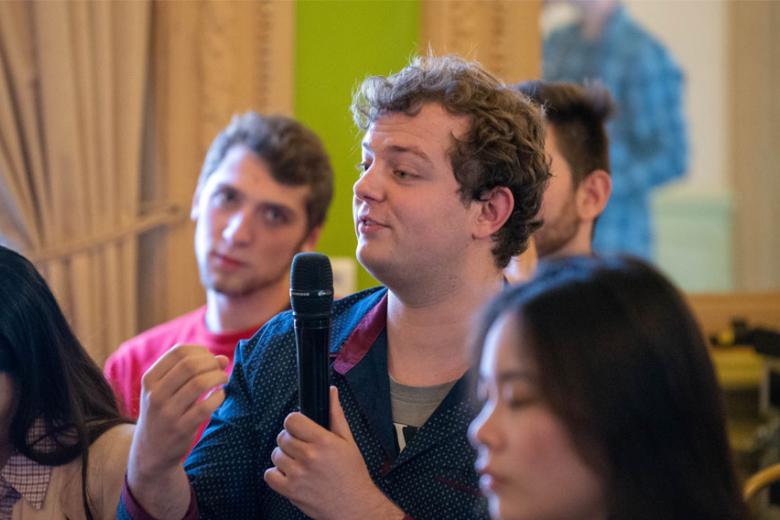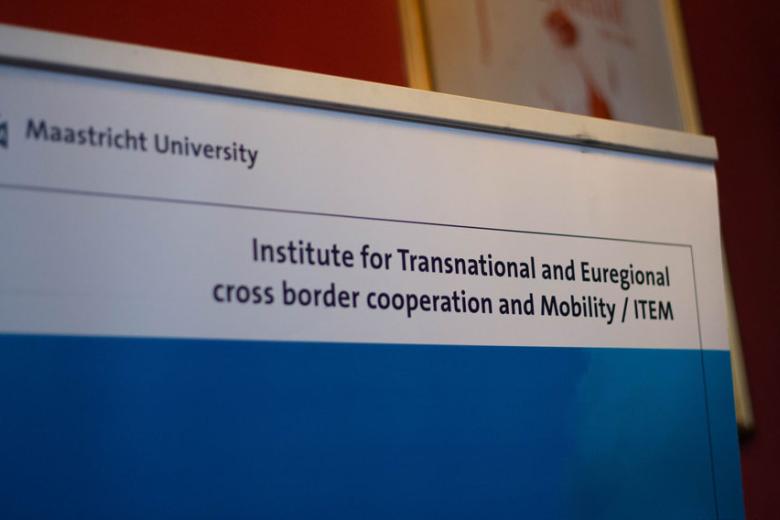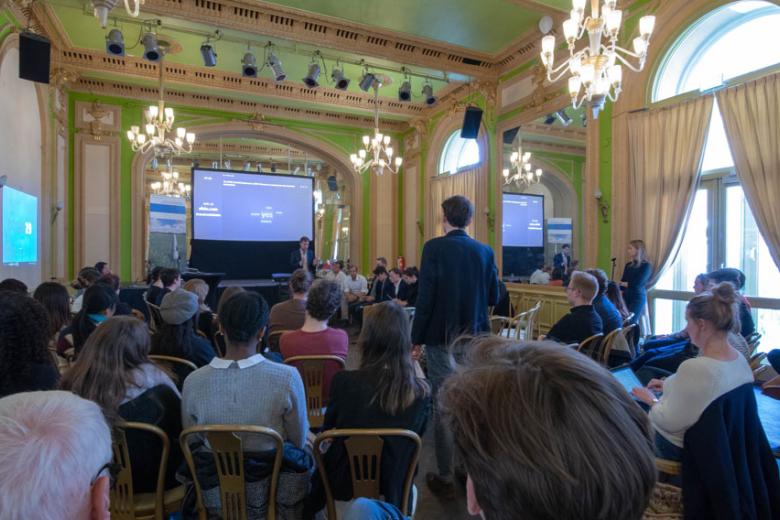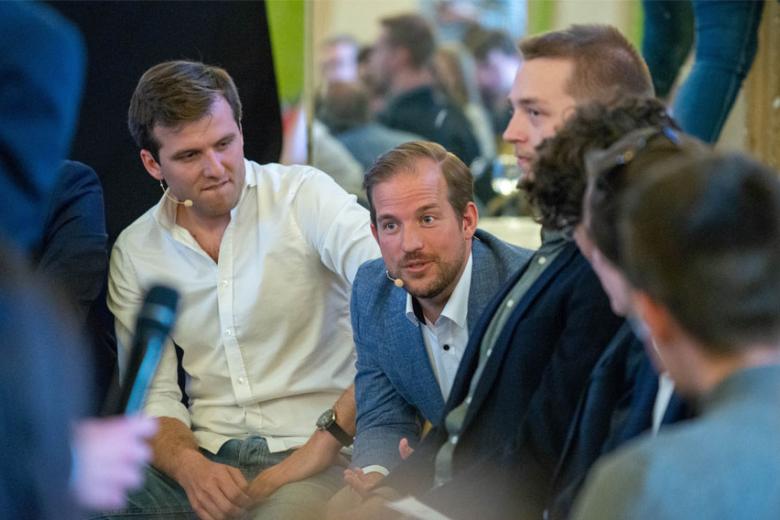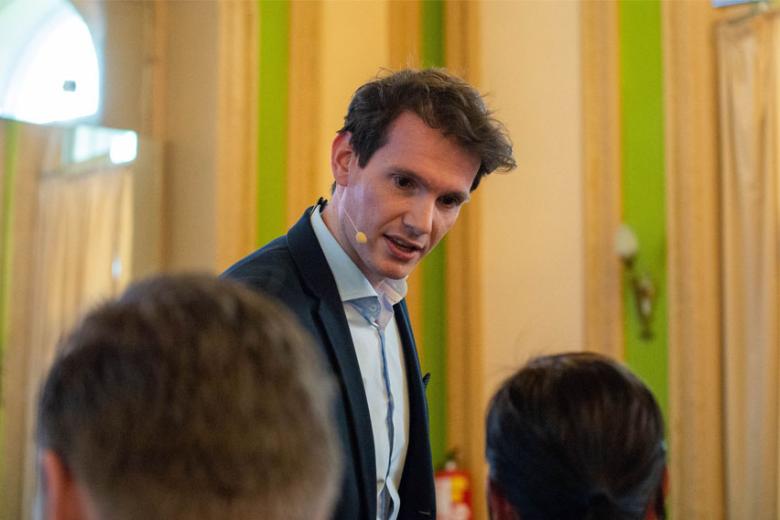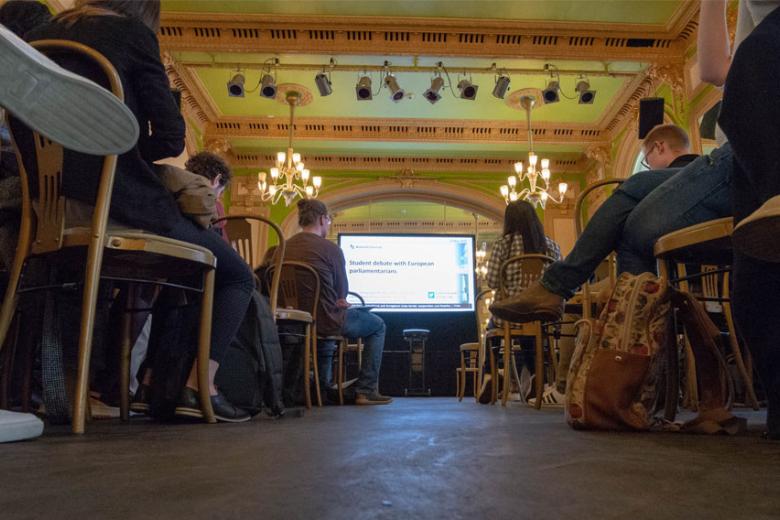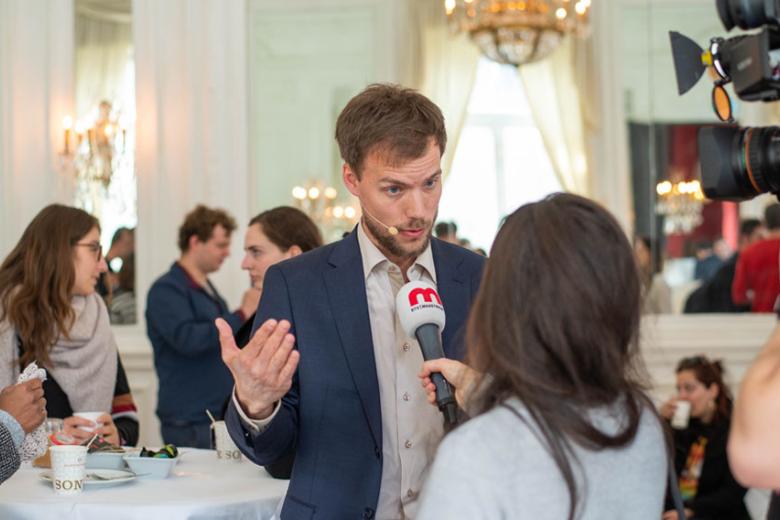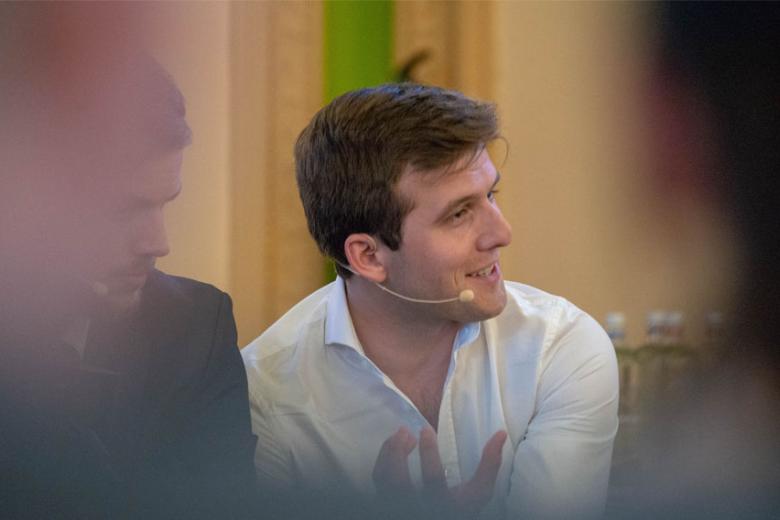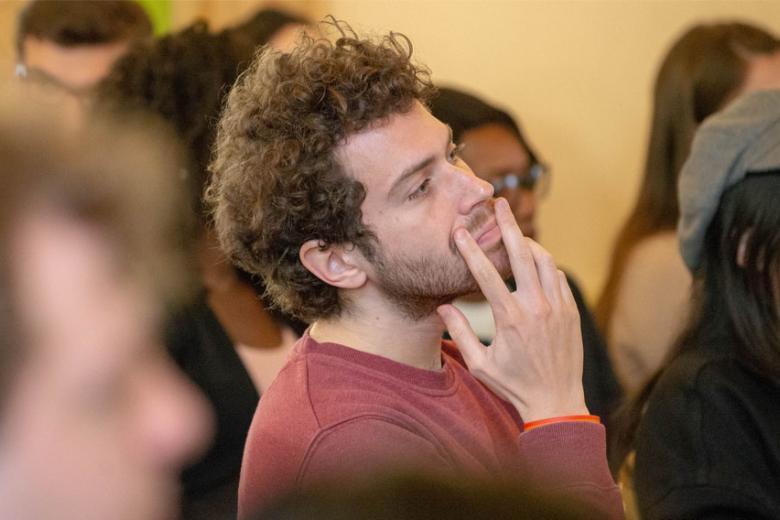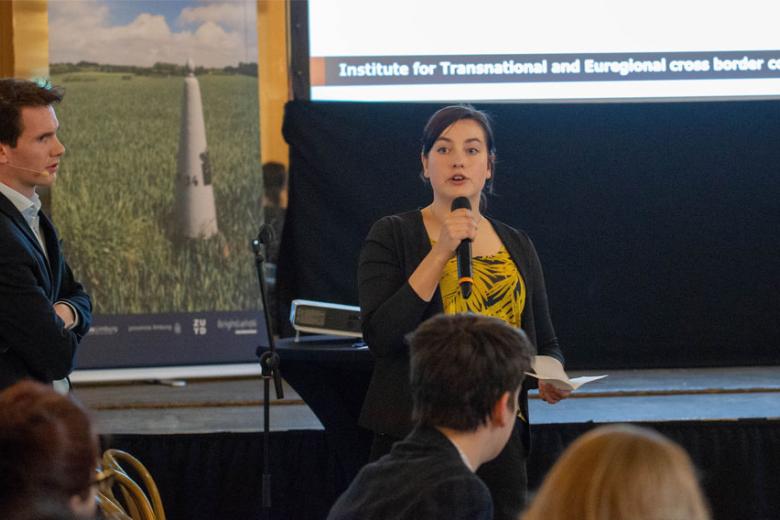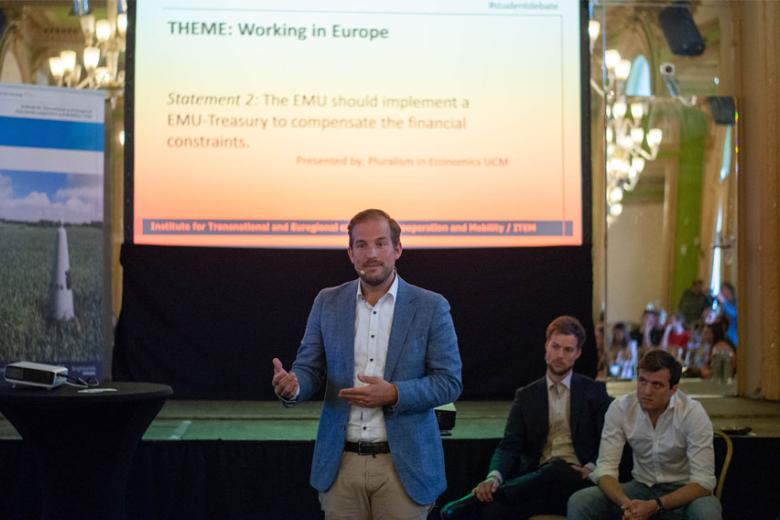Student debate: Go and vote for Europe
In the run-up to this week’s European elections, Maastricht University students crossed swords with European parliamentarians (MEPs) on several pressing issues. The debate at the Bonbonnière was organised by Maastricht University's ITEM Expertise Centre and ended with a joint call to everyone over the age of 18 to cast their ballot and make their voices heard on 23 May.
The student debate in Maastricht covered key election issues such as climate change, unemployment, migration, security and working and studying throughout Europe.
MEP candidates taking part:
- Felix Klos, former spokesperson for the liberal democrat D66 party in the Dutch parliament, now one of the key candidates for D66 (part of ALDE) in the European elections. He graduated in Political Science at Middlebury College in the US, and in Modern British and European History at Lincoln College, Oxford.
- Jannes de Jong, Head of Unit at the ECR Group in the European Parliament. De Jong is running on behalf of the orthodox Christian party ChristenUnie. He studied International Development Studies at Utrecht University.
- Jeroen Lenaers has been in the European Parliament since 2014 for the Christian democrat CDA party as member of the European People's Party. He studied European Studies at Maastricht University.
Unfortunately, Jacques Michel Bloi (ALDE) had to cancel due to illness. Prior to the debate, study associations presented their propositions for the debate and took turns explaining them. Next, the MEPs were given a minute to respond to each proposition, after which the moderator invited the student audience to join the debate. Via Kahoot, projected onto a big screen, the opinion of the online audience could be monitored. Based on this input, questions were formulated and put to the MEPs and the other participants.
Feedback
After the event, students and parliamentarians alike spoke highly of the debate, applauding the atmosphere, the quality of the discussions and the engagement of those taking part.
"ITEM managed to create a space of constructive exchange between students and MEPs. PINE (Pluralism in Economics Maastricht) favours a new approach to economics in order to address urgent issues such as climate change, unemployment or right wing tendencies adequately. This debate has once more underlined that in order to tackle climate change and other issues, we need to change economic thinking first."
Maurice Höfgen, Pluralism in Economics Maastricht, University College Maastricht
"The Student Debate organised by ITEM provided a great opportunity to directly discuss topics that we find important with potential MEPs. The format of the debate, the statements formulated by our and other associations, the interactive web tool as well as the skilled moderator ensured that the debate was truly student-friendly. MEPs and participants were really engaged. Big thanks to ITEM!"
Liselotte Grönlund, European Law Students Association, Maastricht
"The atmosphere at the debate was quite electric. The candidates stood their ground despite the tough questions and they challenged each other. Also, the audience made sure that the candidates gave well-argued responses and asked for more clarification if the answers were too vague in their opinion."
Oona Huttunen, Jonge Europese Federalisten, Maastricht
Also read
-
International Law Discussion Group discusses Operation Absolute Resolve
The Maastricht Centre for Human Rights hosted the first session of the International Law Discussion Group in its renewed format.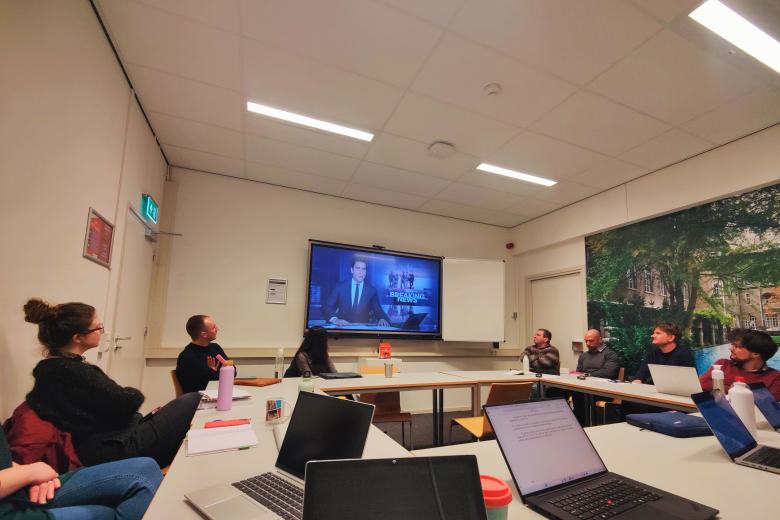
-
Coline van Everdingen on Fair Space for Life
Pick our Brains with Coline van Everdingen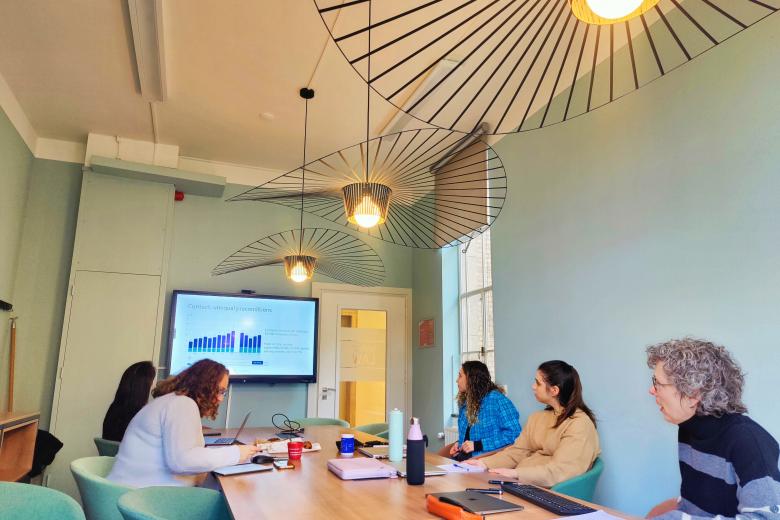
-
EmergEU hosts Jean Monnet Lecture by Emanuele Rebasti on EU emergency law
In this Jean Monnet Lecture, Emanuele Rebasti explored how EU emergency law is reshaping the Union’s legal order.
